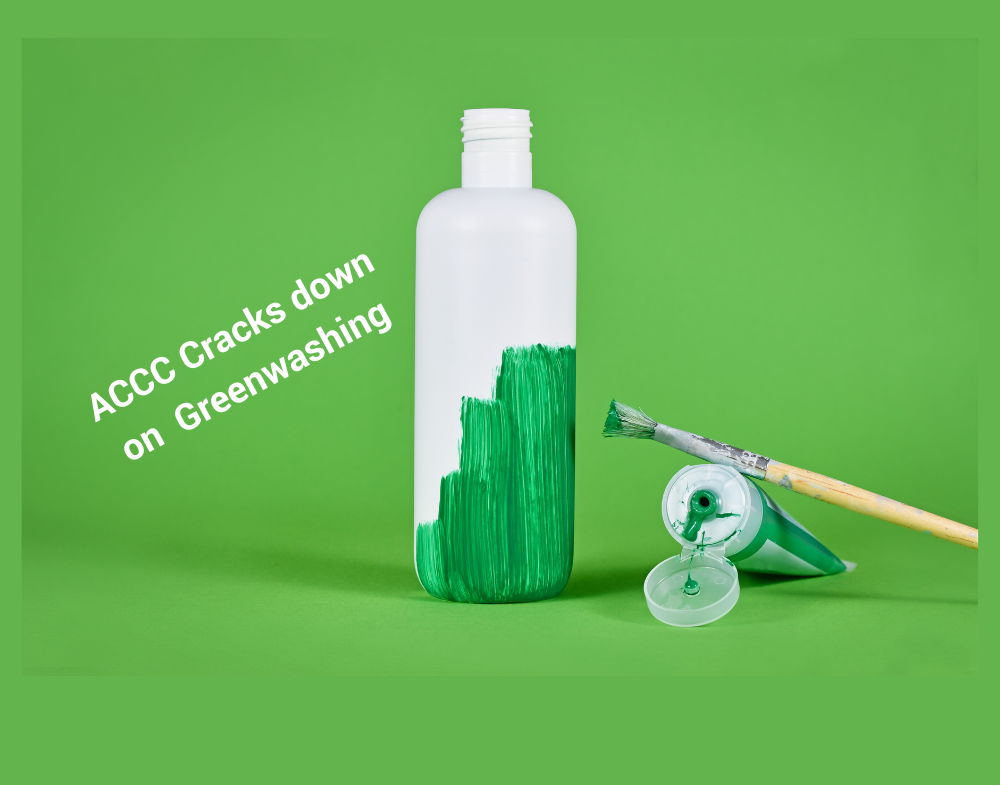 In today’s world, where sustainability is a pivotal consideration for consumers, businesses must tread carefully when making claims about their environmental commitments. Recently, the Australian Competition and Consumer Commission (ACCC) has intensified its scrutiny on what’s known as ‘greenwashing’—the deceptive or misleading promotion of a product’s environmental benefits.
In today’s world, where sustainability is a pivotal consideration for consumers, businesses must tread carefully when making claims about their environmental commitments. Recently, the Australian Competition and Consumer Commission (ACCC) has intensified its scrutiny on what’s known as ‘greenwashing’—the deceptive or misleading promotion of a product’s environmental benefits.
False claims not only mislead consumers but also unfairly disadvantage businesses that genuinely uphold sustainable practices. To navigate this complex landscape, the ACCC has finalized comprehensive guidelines designed to assist businesses in making accurate and genuine environmental claims. These guidelines underscore the importance of accuracy, truthfulness, and verifiability in any sustainability-related assertions.
The ACCC’s guidance outlines eight pragmatic principles essential for businesses venturing into environmental claims:
- Accuracy and Truthfulness: Ensuring claims align precisely with reality.
- Evidential Support: Backing up assertions with solid evidence.
- Transparency: Avoiding concealment of pertinent information.
- Qualifications and Conditions: Clearly explaining any limitations on claims.
- Avoiding Ambiguity: Steer clear of broad, unqualified statements.
- Clarity in Communication: Using language that’s easy to understand.
- Visual Accuracy: Ensuring visuals don’t misrepresent the claim.
- Openness in Transition: Being candid about the sustainability journey.
Crucially, businesses need to corroborate their claims with verifiable evidence and ensure transparency in their supply chain. The ACCC’s consultation with both businesses and the public has fine-tuned these guidelines, integrating practical case studies and insights garnered during the consultation process.
Moreover, the ACCC’s proactive stance on enforcing these guidelines was recently evident in its undertaking with MOO Premium Foods Pty Ltd. The yoghurt manufacturer faced scrutiny for representing its yoghurt tubs as being ‘100% ocean plastic.’ Investigations revealed that the tubs weren’t made from plastic collected directly from the ocean, prompting the ACCC to take action.
As part of the undertaking, MOO has committed to rectify its claims by removing ‘ocean plastic’ references from its packaging and digital platforms, alongside publishing corrective notices. This emphasizes the necessity for accuracy and transparency in environmental assertions.
Ultimately, the ACCC’s crackdown on greenwashing emphasizes the pivotal role of authenticity in businesses’ sustainability claims. Upholding truthfulness, transparency, and clarity isn’t just a regulatory necessity; it’s the ethical foundation of a truly sustainable business landscape. Read more on the ACCC website here
